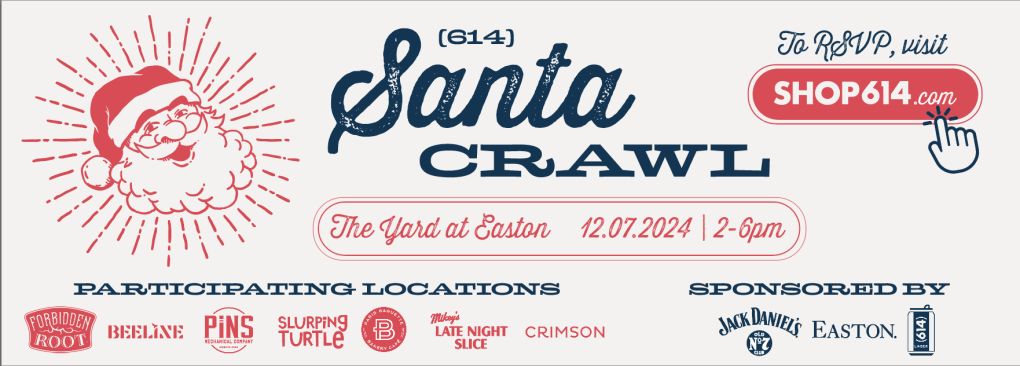The Interview: Nicole Kraft
Journalist / Teacher / Innovator
It’s the day of the interview and I’m scrambling to make sure I’m ready. Is my recorder ready and charged? Yup. Do I have my list of questions? Check. A little mint gum before the interview? It’ll be gone before I start my questions. Extra pens just in case mine dries out? I got ‘em.
A great book about the art of interviewing, Always Get The Name Of The Dog: A Guide To Media Interviewing, once taught me to always show up to an interview at least 10 minutes early. Whether you’re a person who is always late, or just need a few moments to set up, it’s always best to beat your interview subjects to the location. It sets a level of professionalism and lets your subjects know you respect them and their time.
These are all things that you should do in good practice as a writer or journalist. So you can imagine my embarrassment when I arrived to Panera 15 minutes early to find Nicole Kraft, author of said book, sitting at a table, checking emails, sipping coffee, and patiently awaiting my arrival for the interview. But what else would you expect? She quite literally wrote the damn book on interviewing.
“I don’t know who said it, but they said, ‘If you love what you do, you’ll never work a day in your life.’ And I’ve never worked a day in my life.”
Giving Kraft the title of just author is not only disingenuous, it’s a disservice. Beyond publishing her digital interviewing book Always Get The Name Of The Dog in 2013 as well as a lengthier and updated print version set to release in January of 2019, Kraft is a communications and journalism professor at Ohio State. As an Apple Distinguished Educator, she spearheaded the arrival of iPads for freshmen on OSU’s campus. She’s the director of the Sports and Society Initiative. She’s an active writer for The Columbus Dispatch and the Associated Press. She specializes in media law and ethics, and she’s a mother and wife. It might seem like Kraft sleeps standing up with her eyes open so she can be ready for the next task to conquer. But to her, the high workload never feels like a chore because she’s able to do the things she wants to do.
“I don’t have any hobbies; everything I do is a hobby in its own way,” Kraft explained as she finished up working on a lesson plan for the Spring semester. “I don’t know who said it, but they said, ‘If you love what you do, you’ll never work a day in your life.’ And I’ve never worked a day in my life.”
Whether you want to call it a labor of love, a hobby, or a job—one thing is for certain—Kraft is a go-getter. From the ripe age of eight, she had already began printing her own local newspaper, “The Bicentennial Times,” that she would hand out to neighbors as she was dressed as Betsy Ross. Once in high school, she said she watched All The President’s Men and was instantly set on becoming an investigative journalist. This flash of insight led her to becoming an editor with her school newspaper, a dream internship with the Philadelphia 76ers, and was eventually what brought her from the West Coast to Columbus.
But the move to Columbus wasn’t as easy as it sounds. Kraft’s husband, Brian, wasn’t too keen on the idea of moving from the West Coast to the East Coast. Initially, Kraft was hoping to land a job in New Jersey with Hoof Beats, which she had read avidly since childhood. She knew she was perfect for the position as she had spent her life around horses. So, she submitted a letter and resume, and took her shot. Unfortunately (or fortunately if you are Brian), a move to New Jersey wasn’t in the cards. But through the application process, Kraft’s name was forwarded along to an editor who found her an associate editor position in good old midwestern Columbus, Ohio.
In Brian’s defense, Nicole wasn’t exactly thrilled about Columbus at first either.
“When I came here for my interview, I flew from the San Francisco Airport—I’m from Napa Valley—into Columbus and the flatness of it…. I cried when I got to the hotel that night,” she recalled. “I called my husband like, ‘It’s so flat here!’ ”
It didn’t help that when the Krafts first moved into Clintonville in 1995, it was still dry. Needless to say, there was some culture shock. But after 24 years in the community, she said she doesn’t see herself anywhere else.
“We swore we’d only be here for two years; that was it. And now I don’t think we’ll ever leave.”
This little anecdote about her career path is another example of an on-brand moment for Kraft. She’s always wanted to do whatever she wants to do, and her way of achieving this goal is relatively simple: put yourself out there.
“I always say yes. I never believe I can’t. And that’s the type of things I tell students all the time: ‘Just say yes. What’s the worst that can happen?”
“I always say yes. I never believe I can’t. And that’s the type of things I tell students all the time: ‘Just say yes. What’s the worst that can happen?’ If I send him a letter and he says no, the worst thing that can happen is he said no,” Kraft explained about the Hoof Beats
application process.
That’s how the process went for her second installment of Always Get The Name Of The Dog, too. The first book was put together after she had been trained on how to use iPads. It was a chance for her to play around with the technology, try something new, and show people how to engage in meaningful one-on-one conversations. The second book, however, materialized simply because she was asked to turn it from a digital book into a print book. Her response? “Yeah, of course. That sounds awesome, I’d love that.”
(Even better: she bought copies for her class so students don’t have to shell money out of pocket to gain access to the information.)
While most of the world looks at mobile devices and social media as a plague that is destroying millennials and other generations alike, Kraft sees them in a different light. Her expertise includes mobile technology and iPad learning, and her classroom model incorporates a little bit of everything. Instead of a roll call attendance policy, students check in using a hashtag via Twitter. If you follow her on Twitter, you’ll often see her retweeting articles posing ethical questions to students, or simply tagging a tweet as #osunewsclass to generate conversation. She also uses a “flipped classroom” where students read and watch videos at home, then come to class to discuss, displacing the lecture time traditionally spent in class.
“When I first started teaching, I didn’t come from academia, so I think that [it’s] different that I came from that real-world setting. I tried to be the professor that I wished I could’ve had, which is somebody who recognizes that the world is important, and that education and the things we do in education have to mirror the world to a degree, and we have to integrate it,” she said.
She’s also a huge advocate of using social media for more than just memes and Tasty cooking videos.
“When we ignore what is real and what’s in front of us—you know the fact is three-quarters of this [Panera] are on social media—that’s where people live, that’s where social networks are made. It’s not called a social network for nothing,” Kraft said, gesturing around the room. “By excluding it from a classroom experience, we’re really cutting students off from a main pathway that they have both to communication and socialization. The other big part is they are going to use it. I have to teach them in my view to use it for good and not evil, and to realize how beneficial it can be for them.”
That being said: it’s not strictly all work and no play for Kraft on social media. Before each semester, she searches her students on social platforms to get a better idea of who they are, while also pointing out that most of the information they post is accessible by anyone, including potential employers. It’s great for feeling out what the class roster will be like, and it does shock students when she pulls out little factoids about them from when they posted a one-off status in high school.
As a former student of Kraft’s classes, I can attest that the lessons she teaches are worth more than their weight in gold. Going into my final semester at Ohio State, I needed an internship in the worst way. Of course, Kraft had an answer. A little magazine published by (614) Media Group (maybe you’ve heard of us?) named 1870 Magazine was looking for student writers for the summer of 2017 and she forwarded my name to the editor. Now it’s 2019, and I’m still using all the tools she gave me to tell stories for (614) and serve as editor-in-chief of 1870 Magazine.
I also remember nearly every fresh writer in her class wanting to feature her and all she does for the university and the city, but those pitches were always met with a stern no. But from hearing her war-like stories, seeing her enthusiasm, and catching her infectious drive, can anyone blame a young writer for wanting to tell Kraft’s story? There’s no question here: she had a story that needed to be told. It just had to be done in the right manner.
Well, Nicole. Life has gone full circle. I’m no longer in your class, but I’m still pitching story ideas to write about you. And this time, I got the green light.
Read samples of Nicole Kraft’s articles about Columbus at nicolekraft.com/archives.
BROUGHT TO YOU BY




